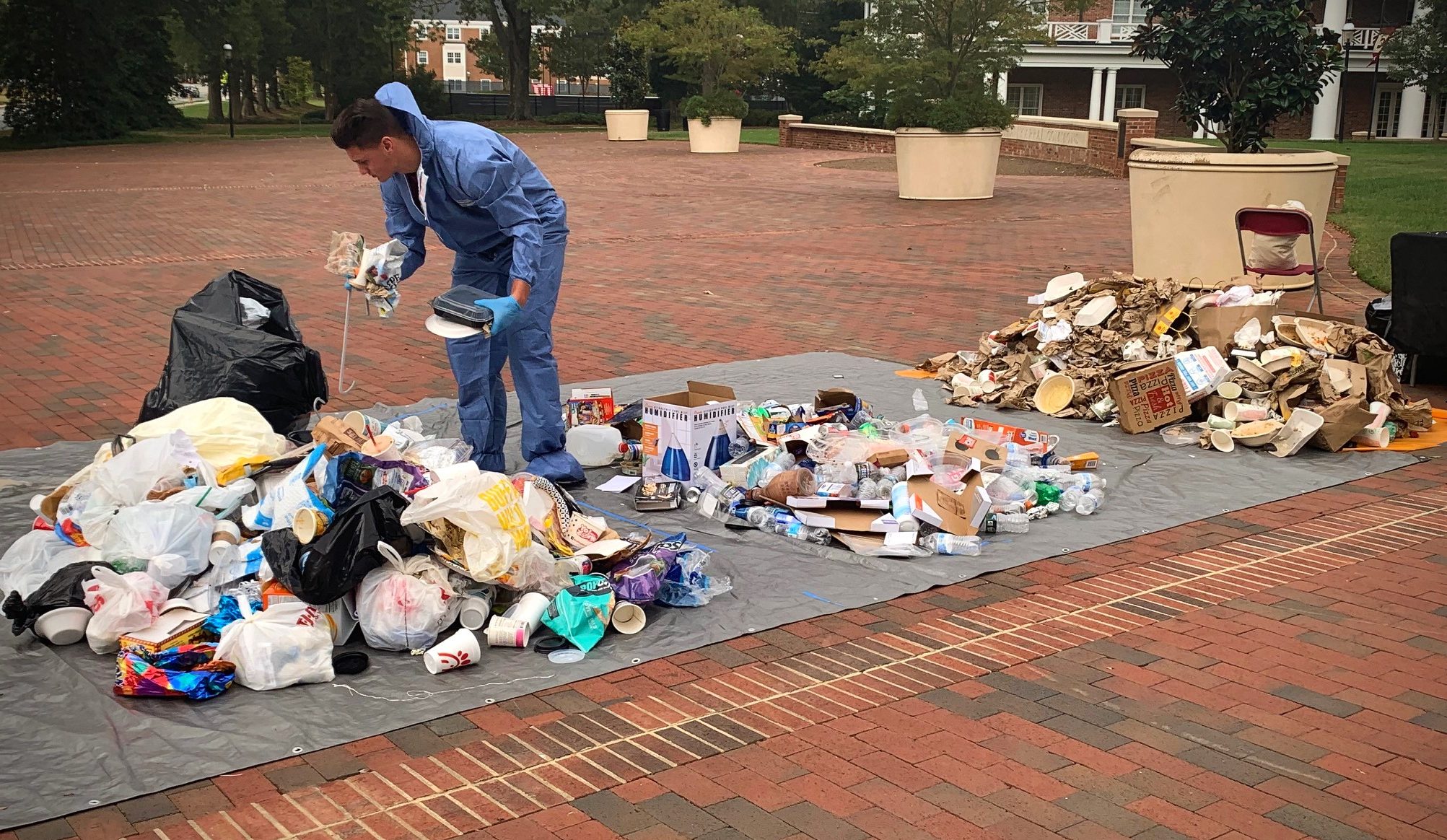The demonstration, which served as the opening of Campus Sustainability Week at Elon, showed how much of the campus' landfill waste could actually be recycled or composted.
The bricks of Phi Beta Kappa Commons were covered in waste to raise awareness of an important issue on Monday.
“Landfill on the Lawn” reminded the campus community to properly dispose of its waste. For the demonstration, the Office of Sustainability collected trash from landfill waste bins across campus, and then sorted that waste into piles of landfill garbage, recyclables and compostable items, to show how much “landfill waste” actually belongs in a different bin.
By the end of the demonstration, staff had collected 44.1 pounds of trash, 38.3 pounds of recycling and 31.7 pounds of compost from campus landfill bins, meaning only about 39 percent of the waste found in those bins actually belonged in the landfill.
“I think people often see something that’s compostable and just assume it’s going to compost anywhere,” said Kelly Harer, assistant director of sustainability for education and outreach. “If it goes to the landfill, it doesn’t actually compost, and it actually creates methane, which is a greenhouse gas 20 times more potent than carbon dioxide, so it’s really important to put waste in the correct place.”

Michael Ebaugh ’20, a project management and environmental studies major who also works as a waste reduction intern for the Office of Sustainability and Physical Plant, helped sort waste at Monday’s event. A former football player, Ebaugh describes the practice of properly disposing of waste as “taking care of the locker room.”
“I think students are at a prime time when they’re starting to create habits,” he said. “If you take time to properly sort your waste, if you take the time to take care of yourself, if you do the small things right, they start to accumulate into the big things.”
Because all items placed in landfill waste bins at Elon are sent to a landfill, the university hopes to educate the community about proper disposal to avoid sending recyclables or compostable items to the wrong locations. The Office of Sustainability has offered guidelines to help determine what waste belongs in what bin:
- Recycling: paper, plastic, metal cans, glass, cardboard, printer and toner cartridges, etc.
- Composting: food scraps (meat, bones, dairy, fruit peels, coffee grinds, etc.) and serviceware labeled as compostable
“People don’t always understand the impact that they can have just from doing their part, so we’re trying to show collectively at Elon University, ‘look at all this stuff we have that we’ve been putting in the landfill that could go in other places,'” Harer said.
“Landfill on the Lawn” marked the start of Campus Sustainability Week at Elon. Campus Sustainability Week is an opportunity for Elon students, faculty and staff to come together to examine sustainable habits, particularly as they relate to energy use, and inspire positive, sustainable change throughout the Elon community.
Campus Sustainability Week includes energy competitions, a wellness fair and other events and opportunities to learn about and demonstrate sustainability on campus.
The week is also an opportunity to learn about and celebrate Elon’s current sustainable practices as it works toward becoming a carbon-neutral university by 2037.
Sustainability is an institution-wide effort and a key objective of the Elon Commitment strategic plan. Elon’s success in achieving its sustainability goals largely depends upon every member of the campus community taking an active role.
For more information about sustainability at Elon, visit the Office of Sustainability’s website.



